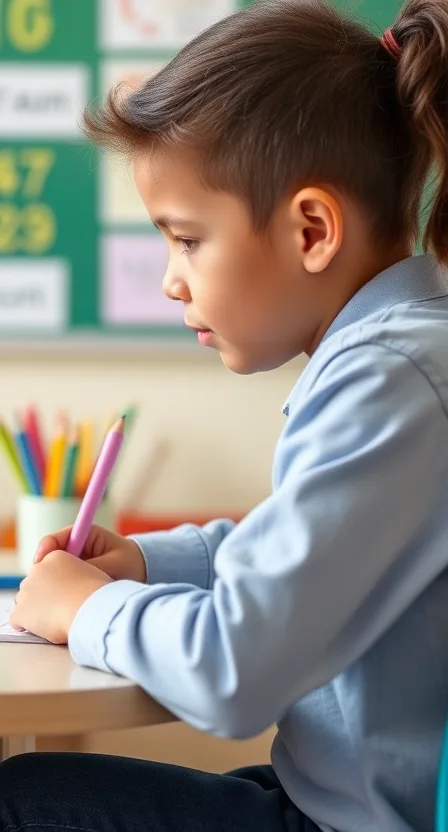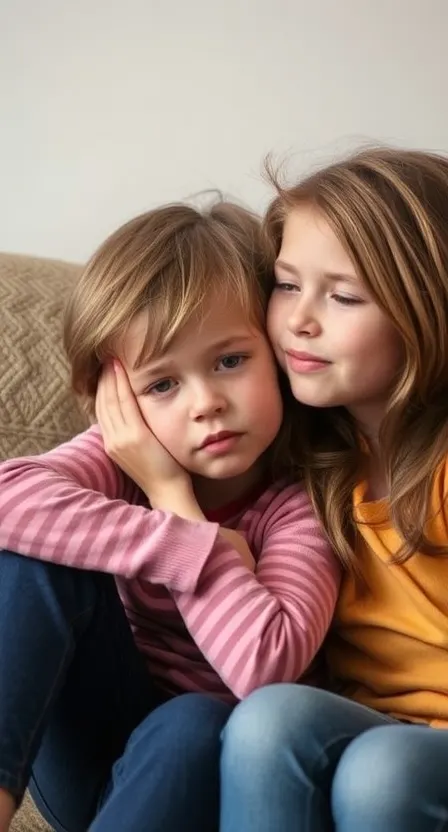Children often express their emotions in ways that may not be immediately apparent. Recognizing the signs of emotional distress is crucial to ensuring your child’s mental and emotional well-being. Let’s explore the top 10 signs that indicate your child might need emotional support and how to address them.
1. Sudden Mood Swings
Mood swings are a natural part of childhood, especially as kids grow and face new challenges. However, if your child experiences extreme or sudden changes in mood without a clear trigger, it could indicate underlying emotional struggles. For instance, they may shift from being joyful to irritable or anxious in a matter of moments. This behavior could stem from unresolved stress, bullying, or difficulties in expressing their emotions.

2. Changes in Sleep Patterns
Sleep is vital for a child’s physical and emotional health. A child who struggles with falling asleep, wakes up frequently, or experiences nightmares may be dealing with stress or anxiety. On the other hand, excessive sleeping could signal emotional exhaustion or depression. Sleep disturbances can affect their ability to concentrate, perform academically, and interact socially.

3. Declining Academic Performance
A sudden drop in academic performance often reflects more than just a lack of interest in school. It might indicate emotional distress. Children may struggle to focus, complete assignments, or retain information if they are preoccupied with emotional issues. Behavioral changes, such as becoming disruptive or withdrawn in class, may also occur.

4. Social Withdrawal
Children thrive on social interactions, so avoiding friends, family, or group activities can be a warning sign of emotional struggles. They may isolate themselves to avoid situations they find overwhelming or to hide feelings of sadness or fear. This withdrawal can exacerbate feelings of loneliness and disconnect.

5. Unexplained Physical Complaints
Emotional distress often manifests physically in children. Frequent headaches, stomachaches, or other ailments without a clear medical cause can be linked to stress, anxiety, or depression. These symptoms can disrupt daily activities and may lead to frequent absences from school or social events.

6. Excessive Irritability or Anger
It’s natural for children to express frustration occasionally, but frequent or intense outbursts may indicate deeper emotional issues. They might struggle to manage their anger or become irritable over minor things, signaling an inability to cope with stress or unresolved feelings.

7. Low Self-Esteem
Children with low self-esteem may avoid challenges, make negative comments about themselves, or fear failure. They might compare themselves unfavorably to others, leading to feelings of inadequacy. This can affect their confidence, relationships, and willingness to try new things.

8. Loss of Appetite or Overeating
Changes in eating habits, such as skipping meals or overeating, can be a response to emotional distress. Your child may use food to cope with feelings of anxiety, sadness, or boredom. On the other hand, stress may suppress their appetite entirely.

9. Risky or Regressive Behavior
Risky behaviors, such as lying, stealing, or aggression, may indicate that a child is struggling emotionally. Similarly, regressive behaviors like thumb-sucking, bedwetting, or clinging to caregivers can signal anxiety or a need for comfort.

10. Frequent Crying or Overwhelming Sadness
Crying is a normal way for children to express emotions, but frequent or unexplained tears may indicate sadness or depression. They may seem overwhelmed by small challenges or display a lack of interest in activities they once enjoyed.

How to Provide Emotional Support
If you recognize any of these signs in your child, here are some general steps to provide the support they need:
- Open Communication: Foster an environment where your child feels safe sharing their thoughts and feelings.
- Consistency: Establish routines and provide stability to create a sense of security.
- Professional Help: Don’t hesitate to seek guidance from a counselor or therapist for more complex emotional challenges.
- Encouragement: Celebrate your child’s efforts and strengths to boost their confidence.
- Involvement: Stay actively involved in their life to understand their struggles and joys better.
By staying attentive and proactive, you can help your child navigate emotional challenges and develop resilience for a healthier, happier future.




